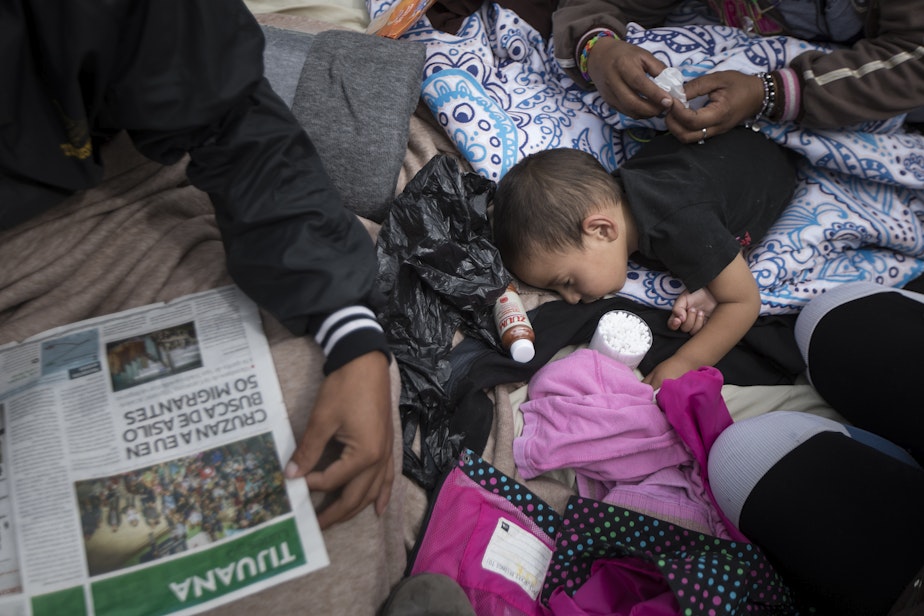'It's like a war zone.' Why asylum seekers are desperate to reach the U.S.

Kim Malcolm talks with Beth Farmer about the experiences of asylum seekers who are coming to the United States from Central America. Farmer is director of Refugees Northwest.
On the trauma that asylum seekers experience:
Farmer: We don't hear stories about the war in Central America. But for people who live there, it’s like a war zone. Some of the stories that we hear from asylum seekers from Central America rival stories we hear from Afghanistan.
We hear of people being decapitated. People being hung from bridges and lamp posts as warnings to other people. We’ve had people report another family member being dismembered in front of them as a warning. There’s a tremendous amount of murder and sexual assault. And young boys are forcibly branded by gang members to force them to join the gang.
When you meet these folks in the detention center, what’s their mindset?
Sponsored
For most of the people we meet, they're incredibly afraid about what will happen to them. They don't know if they can stay, and they do know if they return home they'll be killed.
Often, they also have other family members who are in hiding and they're really worried about them. They can't be in touch with them because that will let narco-traffickers, gang members, or militia members also know where they are. So there's this terrible forced separation from your support system. There's fear for their lives. And then there's this deep uncertainty and fear for your own life.
What’s the impact of asylum seekers being separated from their children?
I think anybody who's been a parent can imagine what it would be like to have your child ripped from your arms and taken away from you. Especially after going through traumatic circumstances and a long journey. To not know where they are, how they are, and who’s caring form them - these mothers and fathers can't really think about anything except ‘where is my child? How is my child? When can I talk to my child? When can I be reunited with my child?’
Do you believe that many of the people detained in SeaTac will be granted asylum?
Sponsored
It's hard to say. The asylum process is incredibly arbitrary. There are tremendous differences depending on which judge hears your case. You can have the same case, and if you’re being heard in Atlanta versus New York, you may have a very different outcome.
Attorney General Jeff Sessions said victims of domestic violence and gang violence are no longer eligible for asylum. Do you agree with that?
Absolutely not. Many of these folks from Central America live in countries where there is very little rule of law. Police and government officials often collude with gangs and narco-traffickers. Victims report gang violence to the police, only to find out that the police officer is also a gang member.
Some women are beaten so badly they end up in the hospital with broken bones. Some have acid thrown on them. When they make a report to police – the police scold them and tell them that they should be a better wife. In some cases that I've worked, the police have driven them home and returned them to their husbands. In these cases, there is no rule of law to protect these women.
The Trump administration claims that many asylum seekers are attempting to game the system by using claims of domestic violence and gang violence. Can that happen?
Sponsored
I suppose it can happen. But I have not come across people in my line of work that are doing this to game the system.
Instead, I've come across people who have borrowed incredible amounts of money, sold their homes and belongings, and have gone on journeys that last up to a year where they’ve been beaten or robbed.
Then they present themselves at the border and stayed in detention for up to a year just for the hope that they can stay safe. It’s hard for me to imagine that people would endure that type of fear and violence if they weren't fleeing from something worse.


